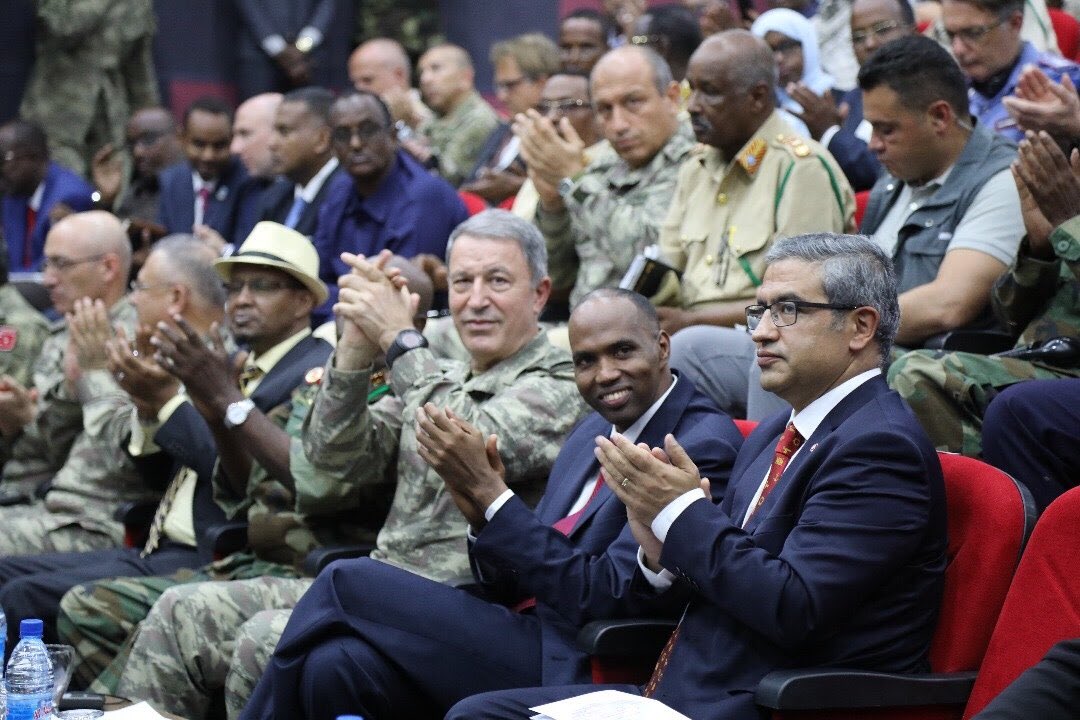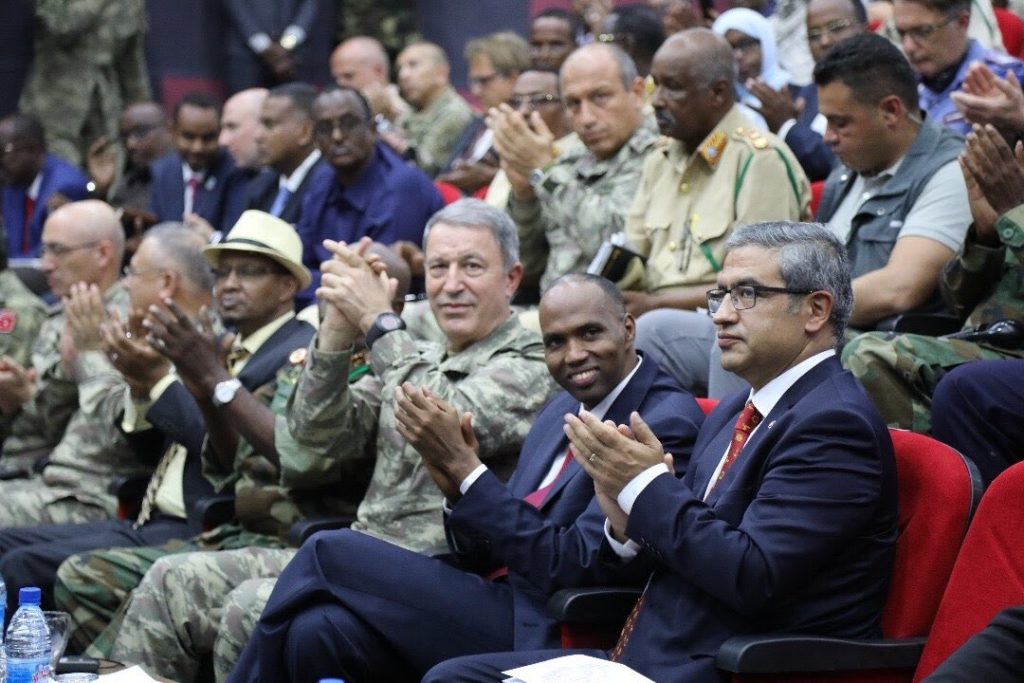Why Turkey remains Somalia’s greatest friend


By Dr. Abdirzack Ali
If you have not been following Somalia politics of late, something extraordinary happened a week ago. Yet again, Turkey, a country with a population of about 80 million and a true ally of Somalia, pulled off another successful venture- this time a military complex, cementing its place in history as the country that stood by an impoverished and war-ravaged nation of 12 million people on the hour of need.
Believed to cost $ 50 million, the military training center is an ultramodern base, spread over four square kilometers, which will overall train about 10,000 Somali forces, and has the capacity to train 1,500 soldiers at a time.
“This is the largest training base of its kind outside of Turkey,” Hulusi Akar, Turkey’s chief of General Staff, said at the ceremony. “The government of Turkey and its army will provide all the needed support to our brothers in Somalia.”
Indeed, the base, while serving as a training ground for the nascent Somali security force, offers a bigger and a more crucial purpose. In the long term, it will deter the predatory advances of Somali regional enemies. Countries like Ethiopia, with a history of persistently intervening in Somalia, including in 2007 when it violently dislodged Islamic Courts Union from Mogadishu, even though it did not pose any credible security threat.
Somaliland, the self-declared republic breakaway region in northern Somalia, which sees Somalia as its strategic enemy, is also weary of the base. In statement after the ceremony, it said it is cautiously watching the base.
HOUR OF NEED
Above all, the opening of the base is a continuation of the recent Somalia-Turkey relations, which began in earnest when Somalia was in throes of combinations of natural and manmade calamities. A devastating famine, the first of its kind in 60 years which killed over 250,000 people according to the United Nations, coupled with ruinous war pitting the government against al-Shabaab militants, a formidable foe then as they are now, put Somalia on the brink of sudden death.
Then in 2011,like a messiah from heaven, Erdogan, the prime minister of Turkey, leading a large entourage of ministers, their wives and businessmen visited Mogadishu against the prevailing narrative that Mogadishu was a no go zone for foreign leaders, given the security threat Al Shahab posed.
In Somalia, Erdogan’s visit galvanized everything. But one particular effect, more than the great developmental and humanitarian projects he later embarked on, was that in the face of gloom and hopelessness, Somalia realized they have a dependable brother; one who is here to stay in the foreseeable future to help and not exploit, like many have done before.
“We have really struggled to make Somalia’s voice heard, to make those who do not see or feel what’s going on in Somalia, see and feel,” Erdogan said.
LONG TERM RELATIONS
Importantly, in order to underscore the long term nature of burgeoning Turkey-Somali relation, Turkey constructed a large and well-stocked hospital in Mogadishu, rehabilitated dilapidated roads, gave students scholarships to top Turkish universities , provided decent dwellings and food rations to internally persons (IDPS) and gave budgetary support to federal government. In addition, unlike some countries, it refrained from nefariously meddling in Somalia’s internal affairs.
Since 2010, the trade between Turkey and Somalia increased significantly, according to Reuters.
“In 2010, Turkish exports to Somalia totaled just $5.1 million. By last year, they had ballooned to $123 million. In the space of six years Turkey has gone from Somalia’s 20th-largest source of imports to its fifth-largest.”
Unfortunately, although many in Somalia welcomed what Turkey has done, it did not go down well with some countries and NGOS. The United Arab Emirates, since the Arab spring paranoia about the spread of forces that toppled some Arab governments in 2011, has taken a concerted effort to position itself as a counterweight. However, it has also taken tough line against the federal government, which is officially neutral in the Gulf crisis, encouraging state level governments to take an independent foreign policy decision.
Foreign NGOS, which for a long time cashed in on the sorry state of Somalia as well as western diplomats, voice some concern about Turkey’s lack of coordination.
The recently unveiled Turkey military base, along with previous trade, developmental and humanitarian projects, affirm Turkey’s purely altruistic intention to stand up by Somalia. We Somali want to say, thank you Turkey.
Dr. Abdirzack Ali is a medical practitioner and a political analyst based in Nairobi, Kenya. He can be reached via: [email protected]